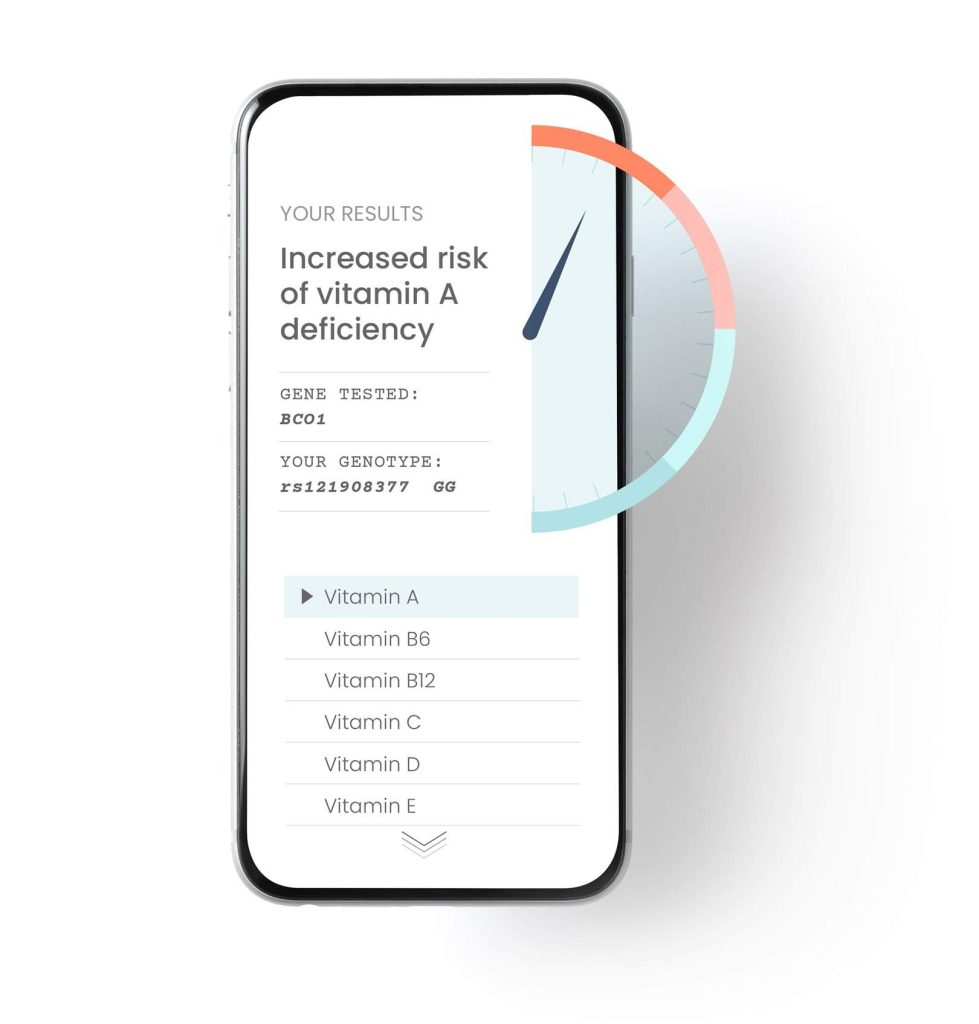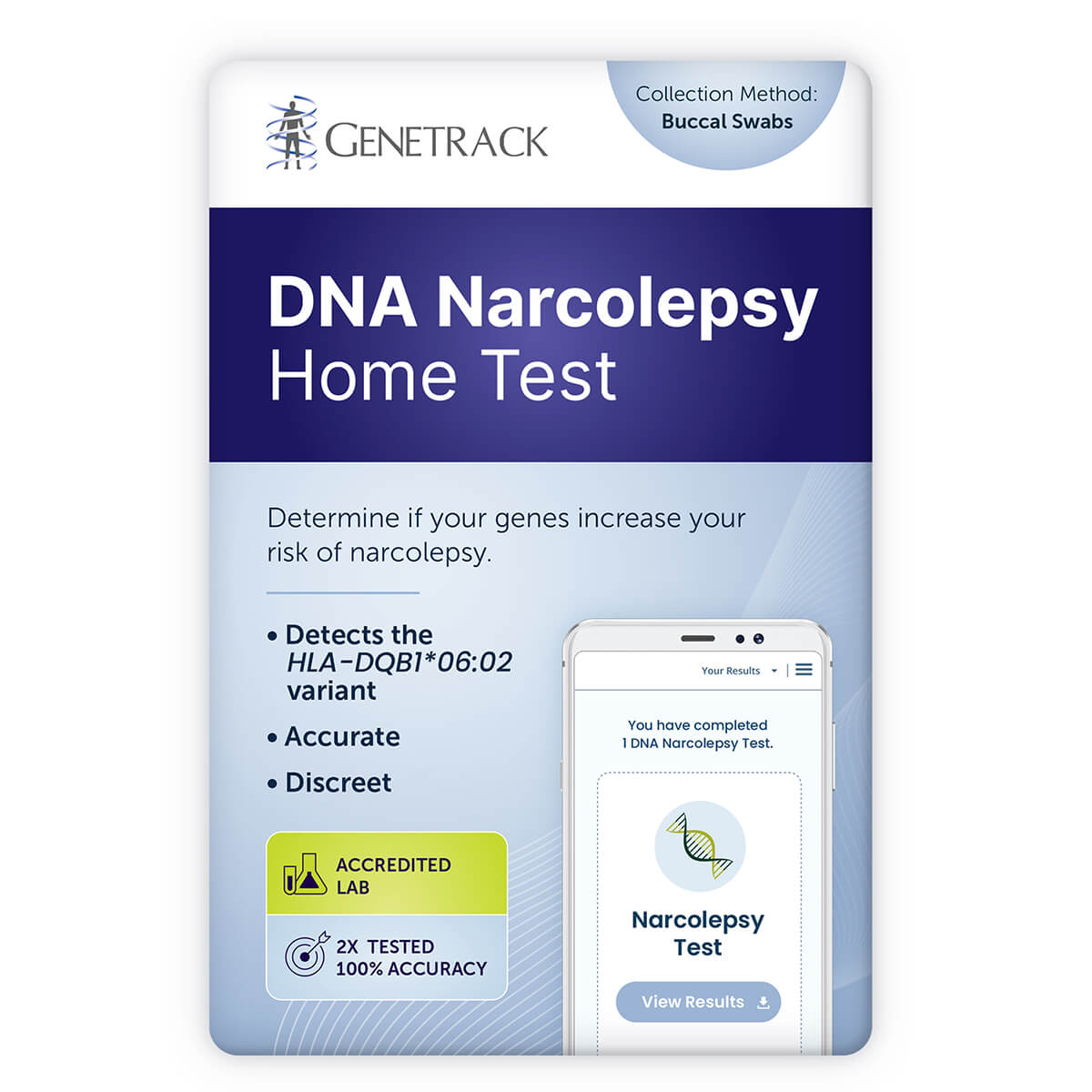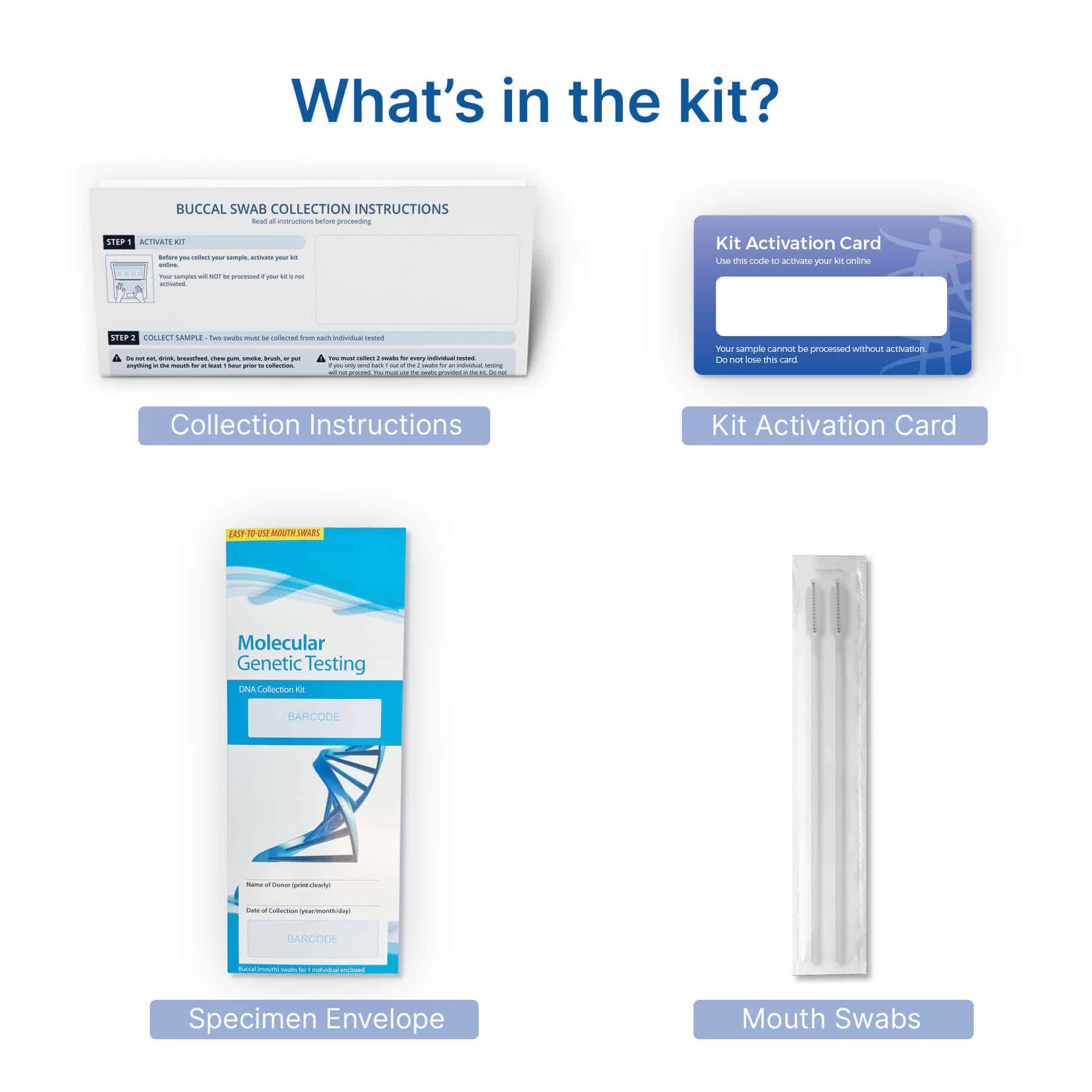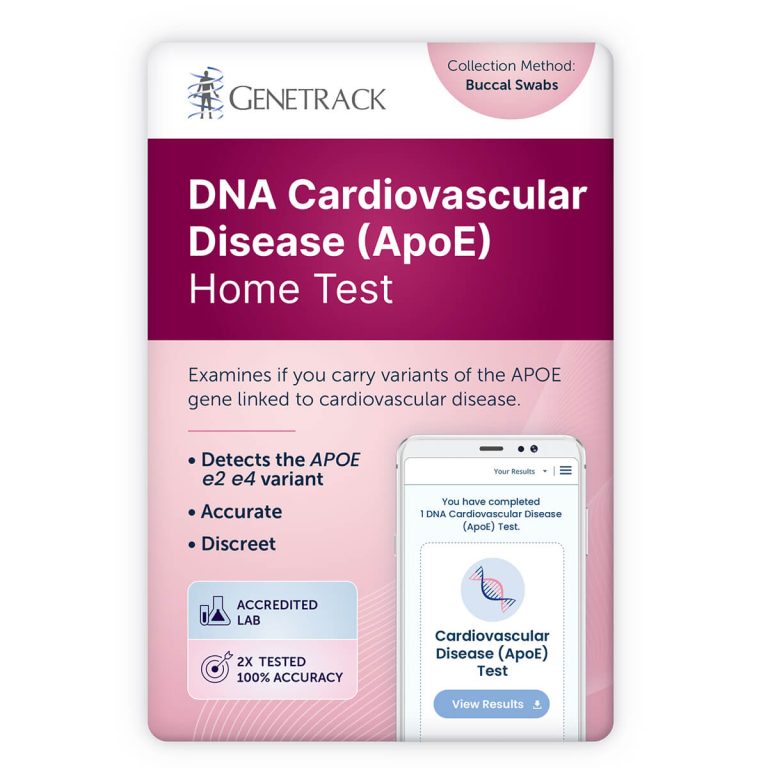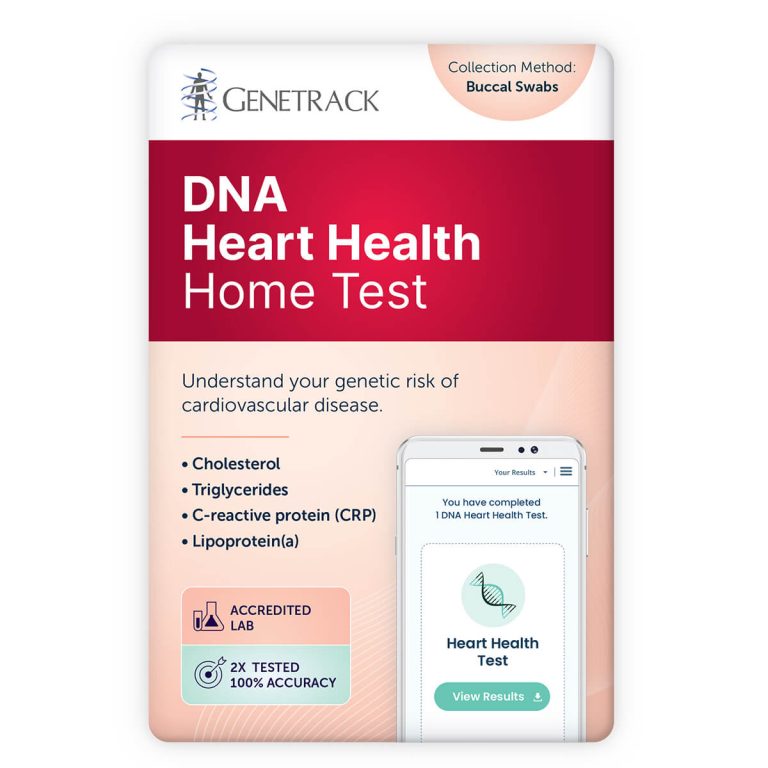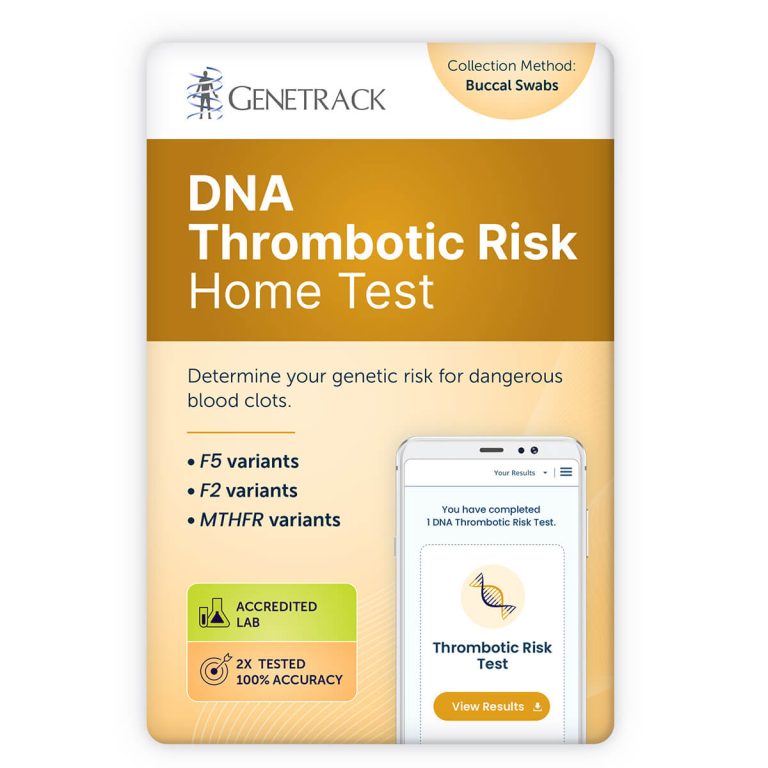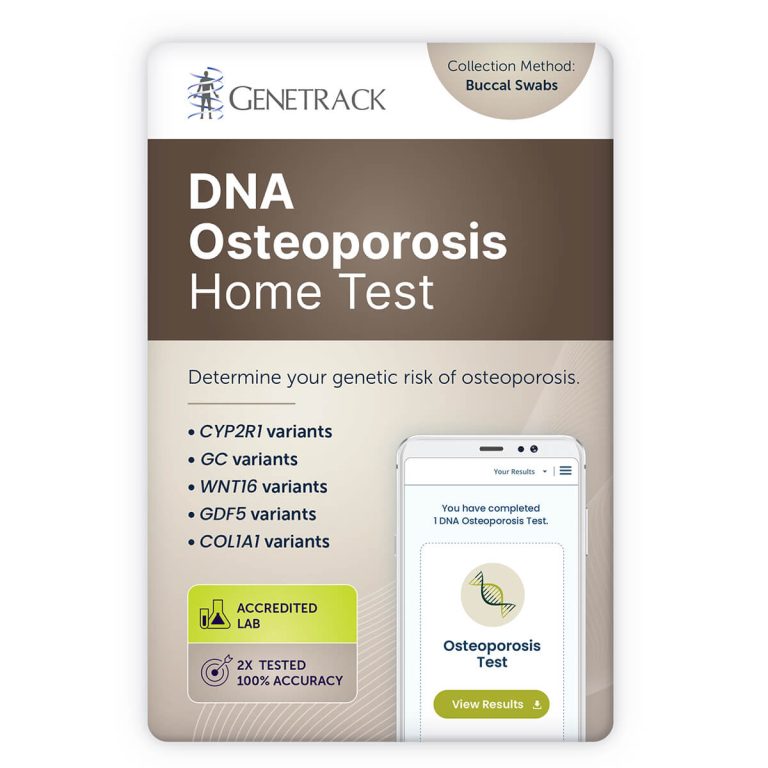DNA Narcolepsy Test
Determine if your genes increase your risk of narcolepsy.
Do you struggle to stay awake throughout the day? You may have narcolepsy, a sleeping disorder caused by disrupting the balance between sleep-awake cycles. Take this DNA test to find out whether your involuntary daytime naps may be due to narcolepsy.
- Detects the HLA-DQB1*06:02 variant
- People with two copies of HLA-DQB1*06:02 are at 7X to 25X increased risk
- 100% private and confidential online results
- Painless sample collection
$195.00
Fast, Convenient, Painless
What is Narcolepsy?
Narcolepsy is a neurological disorder causing intense sleepiness during the day and sudden sleep episodes. It’s not just about feeling tired; it’s caused by an underlying brain issue, not just lack of sleep.
Normally, people go through several sleep cycles each night, each lasting around 100-110 minutes. The cycle is split into:
- Non-rapid eye movement (NREM) sleep
- Rapid eye movement (REM) sleep, where we dream and our muscles relax.
For most, REM sleep starts about 70-90 minutes after falling asleep. But people with narcolepsy enter REM sleep almost immediately. This leads to symptoms like sleep paralysis, intense dreams, and cataplexy (sudden muscle weakness while awake).
How common is narcolepsy?
Narcolepsy affects between 1 in 2,000 to 1 in 5,000 people. Sadly, only about 25% of those affected are accurately diagnosed. Some mistakenly get labeled with emotional or psychiatric problems.
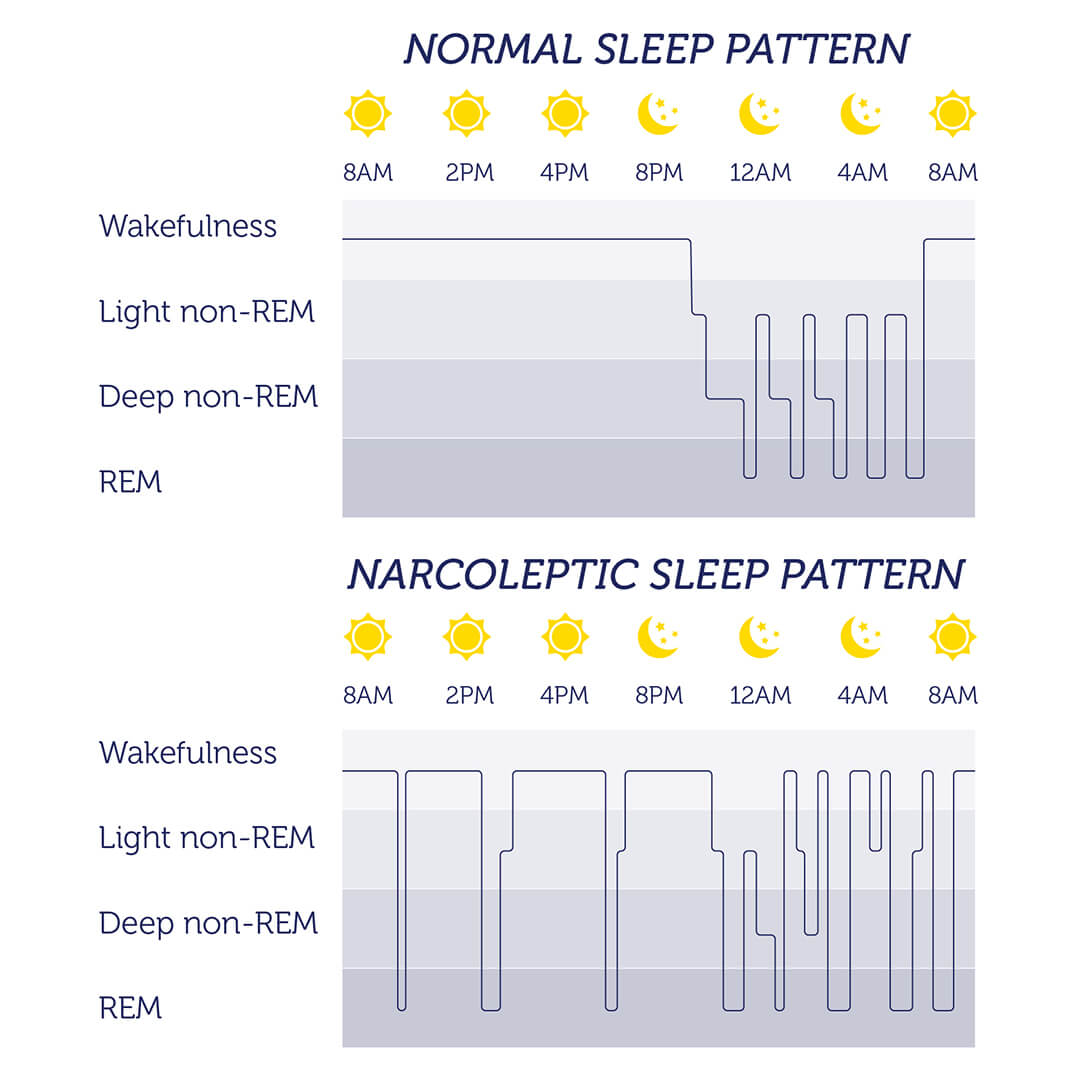
Narcolepsy Symptoms
Narcolepsy presents with a range of symptoms, which vary in frequency among affected individuals:
- Excessive Daytime Sleepiness: Universally experienced by those with narcolepsy, this symptom leads to feelings of persistent fatigue and the uncontrollable need to sleep during the day.
- Cataplexy: Found in about 70% of patients, this involves a sudden loss of muscle tone often triggered by strong emotions like laughter, anger, or surprise.
- Sleep Paralysis and Vivid Hallucinations: Experienced by 10-20% of people with narcolepsy. Sleep paralysis renders a person unable to move or speak while falling asleep or awakening. Hallucinations, either auditory or visual, can accompany these episodes.
- Microsleep: Brief sleep episodes that last mere seconds. During these moments, an individual might momentarily fall asleep, even without realizing it.
- Nighttime Wakefulness: Despite their daytime sleepiness, those with narcolepsy often find themselves awake at night, experiencing disrupted sleep patterns.
- Atonia: A general loss of muscle strength, often linked with cataplexy episodes.
- Involuntary Leg Muscle Contractions: Spontaneous contractions of the leg muscles without a clear trigger.
- Rapid Entry into REM Sleep: Unlike most individuals who enter REM (dream) sleep about 70-90 minutes after falling asleep, those with narcolepsy can enter this phase within minutes of sleeping.
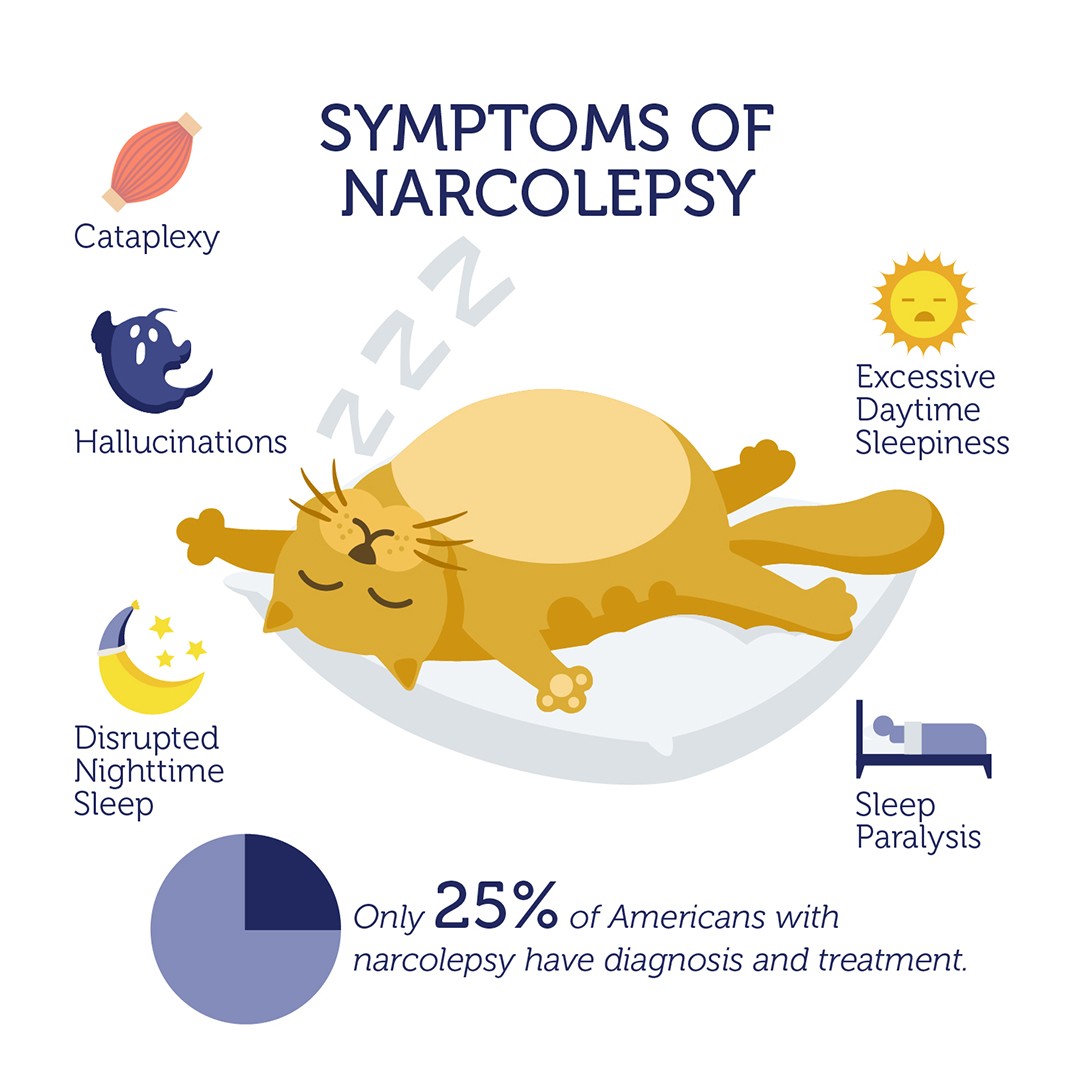
The Genetics Behind Narcolepsy
While most cases appear randomly, genetics play a big role. A person with a family member having narcolepsy is 20-40 times more likely to develop it.
Around 90-99% of people with narcolepsy have a variant of the HLA-DQB1 gene known as the HLA-DQB1*06:02 allele. Yet, carrying this gene doesn’t mean you’ll definitely get narcolepsy – other factors like infections or stress also contribute.
Tested Variants and Narcolepsy Risk
A DNA test can show if you’ve inherited the HLA-DQB1 gene:
- HLA-DQB1*06:02 (two copies):This increases the narcolepsy risk 7-25 times. These individuals will pass the gene to all their children.
- HLA-DQB1*06:02 (one copy) + an alternative HLA-DQB1 allele: These people have a 3x higher narcolepsy risk than average and a 50% chance of passing the gene to their kids.
- No Copies: It’s rare for such individuals to have narcolepsy, and they won’t pass on the associated gene.
However, 15-25% of people who do not have narcolepsy also carry the HLA-DQB1*06:02 variant, indicating that genetics is not the sole contributor to narcolepsy.
Multiple other variants of the HLA-DQB1 gene exist, and many of these offer some protection from narcolepsy, which makes the risk analyses more complex.
How Home DNA Testing Works

Order Test Kit
From relationship tests to health tests, we offer a wide range of DNA tests to fit your needs.
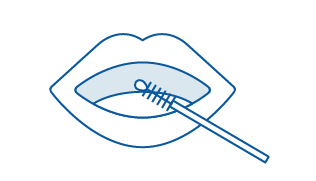
Collect & Ship
Simply collect DNA with our easy-to-use swabs in the comfort of your home.

Receive Results
Access your confidential results online the moment testing is completed. Our team of experts is available for any questions.
Secure & Confidential Online Results
